DISAPPOINTING DEBUT
DELIVERS DAMAGED GOODS
Lyric Opera’s world premiere production of Bel Canto fails to live up to its name (translation: beautiful singing). While first-time opera composer Jimmy López expressly does not attempt to write in the bel canto style, neither does he write beautiful vocal lines’”at least not very many, or enough, of them. Moreover, first-time librettist Nilo Cruz (and his collaborators) ruins Ann Patchett’s exquisitely beautiful novel of the same name on which the opera is based. He can be forgiven for changing certain details; what is unforgivable is the way in which the whole story has been rendered more violent.
Patchett’s novel, inspired by the true story of a hostage crisis involving Peruvian revolutionaries and a group of diplomats, contains violence only at the very beginning and end. None of Patchett’s soldiers shoots anybody and all have great reverence for the captured opera singer in their midst. Cruz might have been trying to adhere more closely to real life than Patchett’s Bel Canto, but if so, he risks disappointing her admiring readers. Renée Fleming, who curated this opera from start to finish, and director Kevin Newbury must share some of the blame for this. The creative team have thereby weakened the central message of the story, which is the “humanizing power of a beautiful singing voice,” in the apt description of General Director Anthony Freud.
Soprano Danielle de Niese, who portrays the captured opera singer Roxane Coss, is constantly pushed around and manhandled by the soldiers. Her character comes across rather more imperiously in the opera, where she demands, orders, refuses, and struts. De Niese even caricatures her role somewhat, especially in the way she expresses Coss’s inability to understand the often foreign speech of her fellow captives. It is a far cry from the much more sympathetic character described in Patchett’s novel.
Besides this major dramatic flaw, or infelicity, Bel Canto’s other faults are primarily musical. Overall, it is too loud. The brassy overture sets the tone, which scarcely quiets down until the beginning of the second half, when it gradually climbs again to a rather grandiose finale. Much of López’s orchestration is rich and quite beautiful, but overwrought. And this is compounded by a cacophony of voices that frequently sing over each other and in different languages, such that individual melodic lines, as well as lyrics, get lost in the ensuing din. Restricting the singers’ use of vibrato would probably make a tremendous difference in this regard.
Not only is López’s score overly loud and needlessly complex, but it is short on melody. Too many sung lines go nowhere, never resolving into the tonic. While most of the music is through-composed, there are certain themes that recur, as well as the odd aria. Perhaps the most lyrical and melodic music is that composed for Carmen’s prayerful aria in Act Two. J’nai Bridges sings it with great sensitivity and tenderness. The opera’s other lovely moment follows not long after, when another soldier, César, finds his voice as he remembers what life was like in the forest before captivity. Countertenor Anthony Roth Costanzo gives memorable voice to César, rendering his soaring lines with agility and strength.
Most disappointing musically is the pair of love scenes, which should have been gentler and tenderer. Instead, the music rises to a fevered pitch of dramatic tension more appropriate to a death scene. A welcome distraction from this unpleasantness is David Korins’ ambitious and ingenious stage set, which contracts at this point to expose two inner rooms where the lovers rendezvous. It later expands and recedes as the hostage crisis ends and Roxane faces an uncertain future.
Violence aside, Cruz’s libretto achieves welcome balance between poetry and prose, dialogue and narration. Even the traditional operatic elements of aria, recitative, and chorus are not entirely absent. Some of the lyrics, however, descend to the inane, as when the captives sing “We are hostages,” or to the crude, as when the absent President of Peru is dismissed as a “maricón” (faggot).
Bel Canto is undoubtedly an impressive production that packs plenty of drama into its intense three hour run time, and while there is much to praise in this brand new opera, it cannot be considered an unqualified success. As an adaptation, it departs too much from the enchanting mood of the original. As an opera, there simply isn’t enough beauty in López’s rather brash and atonal score.
photos by Todd Rosenberg and Andrew Cioffi
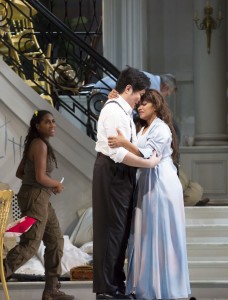 Bel Canto
Bel Canto
Lyric Opera of Chicago
Civic Opera House
20 N. Wacker Drive
ends on January 17, 2016
for tickets, call 312.827.5600
or visit Lyric Opera
for more info on Chicago Theater,
visit Theatre in Chicago
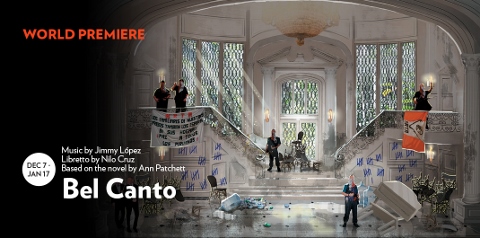
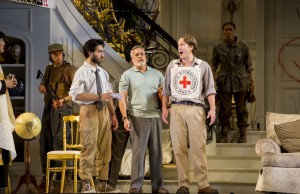
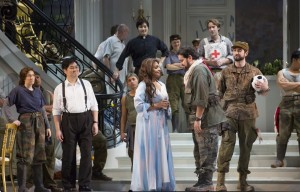
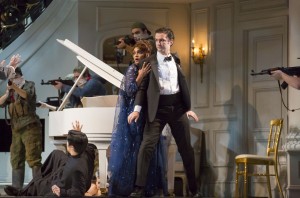
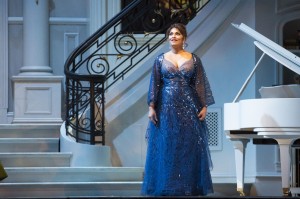
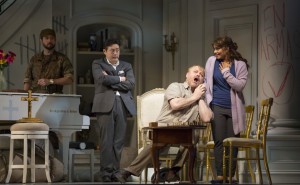
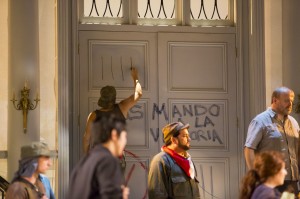
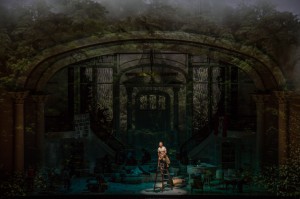
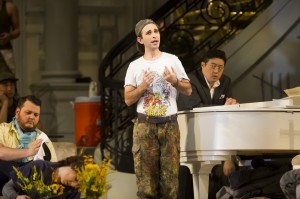
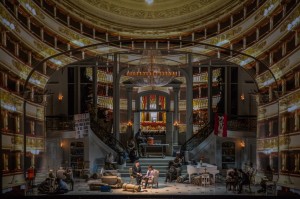
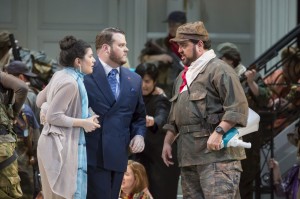
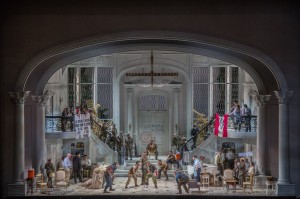
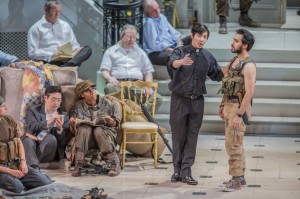
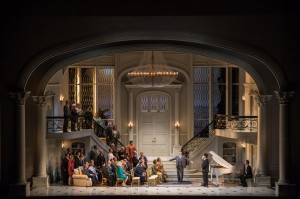
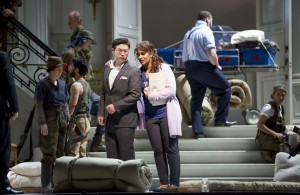
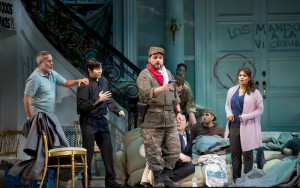
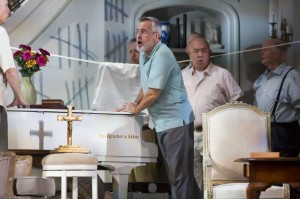
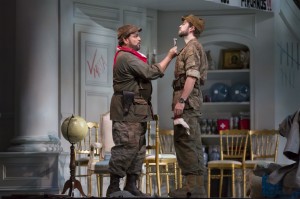
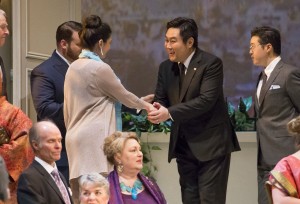

{ 1 comment… read it below or add one }
So wrong…so wrong. Bel Canto was an amazing operatic experience. It isn’t perfect–almost no opera ever has been in the initial production–but it is a wonderfully dramatic piece that should prove to have a place in the opera world.